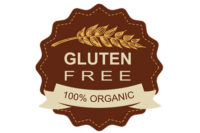Industry Experts
Gluten-free and FODMAPs…What’s the scoop?






Gluten has become Public Enemy Number One. Countless people follow a gluten-free diet, and just about everyone knows someone avoiding foods made with the gluten-containing grains wheat, rye and barley. Thus, the gluten-free marketplace has exploded over the past few years with a wide variety of products that can be found just about everywhere.
Celebrities and others have jumped on the gluten-free diet bandwagon to lose weight. This is ironic because many gluten-free products are higher in fat, sugar and calories than their gluten-containing counterparts. There’s nothing magical about eliminating gluten. It’s a matter of avoiding foods that contain it and eating fruits, vegetables, lean meat, fish and poultry.
But there are individuals who must eliminate gluten out of medical necessity, such as people with celiac disease, an auto-immune disorder that affects about 2% [or more] of the population. Consuming gluten can damage the lining of the small intestinal tract, causing a wide range of symptoms, such as bloating, abdominal pain, diarrhea or constipation, bone and joint pain, nutritional deficiencies, headaches and other neurological symptoms. The only treatment for celiac disease is a strict gluten-free diet for life in order to eliminate symptoms and prevent long-term complications.
Studies over the past few years have also revealed that some people can react to gluten but do not have celiac disease. This condition is referred to as nonceliac gluten sensitivity. Although it appears that many of the symptoms of nonceliac gluten sensitivity overlap with celiac disease (bloating, abdominal pain, fatigue, headache, foggy mind, joint pain, depression, anemia, skin rash and numbness, for instance), consumption of gluten does not result in damage to the small intestinal tract. Unfortunately, there are no tests to diagnose nonceliac gluten sensitivity, so the actual prevalence is unknown at this time.
At the International Celiac Disease Symposium in Chicago last September, scientists, physicians and dietitians discussed this emerging concept of nonceliac gluten sensitivity and whether it’s gluten or some other components in gluten-containing grains or different foods that trigger symptoms in certain individuals. In some studies, gluten has been shown to trigger a variety of symptoms. However, other clinicians have found different results.
Australian researchers have investigated the effects of gluten and “FODMAPs” in people with conditions such as nonceliac gluten sensitivity and irritable bowel syndrome (IBS). FODMAPs are a group of short-chain carbohydrates that are rapidly fermented by intestinal bacteria and can cause bloating, gas and diarrhea in sensitive individuals. The acronym FODMAP stands for fermentable oligosaccharides, disaccharides, monosaccharides and polyols (see chart).
Wheat, rye and barley contain fructans (an oligosaccharide) as well as gluten. A small Australian study published in the journal, Gastroenterology, last August, found that people with nonceliac gluten sensitivity and IBS improved significantly when taken off foods that contained FODMAPs. When gluten was reintroduced—but not the other FODMAP foods—only 8% of those believed to have nonceliac gluten sensitivity reacted to gluten.
The low FODMAP diet is also increasing in popularity, as clinicians are finding that as many as 75% of people with IBS are getting relief from their gastrointestinal symptoms using this dietary approach. For more information about this diet see www.ibsfree.net.
Although researchers have discovered that some of the dietary components that can trigger symptoms in nonceliac gluten sensitivity and IBS, further studies in larger population groups for a longer duration are needed to determine exactly what the mechanisms, diagnostic tests and appropriate treatment are for these conditions. So stay tuned to the evolving science around these very complex issues.
Shelley Case, RD, is a registered dietitian and leading international expert on celiac disease and the gluten-free diet. Case is also a member of the Medical Advisory Boards of the Celiac Disease Foundation, Gluten Intolerance Group and Canadian Celiac Association and the Scientific Advisory Board of the Grain Foods Foundation. She also has a national best-selling book, Gluten-Free Diet: A Comprehensive Resource Guide. She is updating the book this year. Visit www.glutenfreediet.ca for more information.
Looking for a reprint of this article?
From high-res PDFs to custom plaques, order your copy today!










